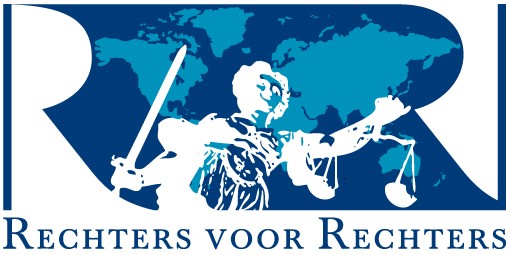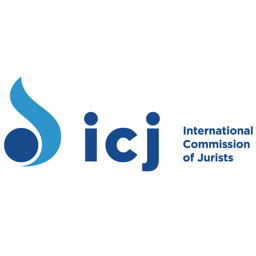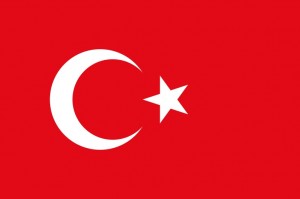 In verband met de uiterst zorgelijke situatie in Turkije hebben een aantal internationale rechters organisaties de krachten gebundeld in een “Platform for an Independent Judiciairy in Turkey”. Rechters voor Rechters maakt hiervan deel uit. Op 5 augustus 2016 heeft het Platform een tweetal brieven gestuurd aan respectievelijk de Secretaris-Generaal van de Raad van Europa (klik hier voor de brief) en de President van de Parlementaire Vergadering van de Raad van Europa (klik hier voor de brief).
In verband met de uiterst zorgelijke situatie in Turkije hebben een aantal internationale rechters organisaties de krachten gebundeld in een “Platform for an Independent Judiciairy in Turkey”. Rechters voor Rechters maakt hiervan deel uit. Op 5 augustus 2016 heeft het Platform een tweetal brieven gestuurd aan respectievelijk de Secretaris-Generaal van de Raad van Europa (klik hier voor de brief) en de President van de Parlementaire Vergadering van de Raad van Europa (klik hier voor de brief).
Category Archives: Activiteiten
Update met betrekking tot Turkije
Vrienden van Rechters voor Rechters,
Op 18 juli jongstleden stuurden wij u een nieuwsbericht betreffende de recente gebeurtenissen in Turkije. De ontwikkelingen zijn uiterst zorgelijk en volgen elkaar snel op. Houdt u vooral ook onze twitteraccount in de gaten voor de meest recente berichten (@Judges4J, maar de tweets zijn ook op onze website na te lezen). Hierbij een korte update, waarbij wij ons baseren op berichten en contacten die we met Turkse collega’s in en buiten Turkije hebben.
Sinds 20 juli 2016 is in Turkije de noodtoestand van kracht.
Alle rechters en officieren van justitie die beweerdelijk een link hebben met de Gülen-beweging – 3.049 in totaal – zijn zonder disciplinair onderzoek geschorst en een groot aantal (thans reeds zo’n 2.200) van hen is gearresteerd op verdenking van deelname aan een terroristische organisatie. Een klein aantal is onder voorwaarden (waaronder in ieder geval een (uit)reisverbod) geschorst.
Aan gearresteerde rechters en officieren van justitie kan de toegang tot een advocaat door justitie worden ontzegd. De staat heeft ‘court appointed defence lawyers’ geregeld en zij zijn aanwezig  geweest bij de voorgeleidingen. De gesprekken tussen de verdachten en hun advocaten worden opgenomen. Een flink aantal advocaten heeft zich inmiddels teruggetrokken uit angst voor het regime, aangezien er nu ook een groot onderzoek plaatsvindt (inclusief bijbehorende arrestaties) tegen advocaten door het hele land.
geweest bij de voorgeleidingen. De gesprekken tussen de verdachten en hun advocaten worden opgenomen. Een flink aantal advocaten heeft zich inmiddels teruggetrokken uit angst voor het regime, aangezien er nu ook een groot onderzoek plaatsvindt (inclusief bijbehorende arrestaties) tegen advocaten door het hele land.
Bezoek- en belrechten voor de gedetineerden zijn sterk ingeperkt.
Continue reading Update met betrekking tot Turkije
Turkije | Petitie
De situatie met betrekking tot Turkije is uiterst zorgelijk. Wij berichtten u eerder daarover. Ons is gevraagd medewerking te verlenen om bijgaande link voor het ondertekenen van een petitie aan de Raad van Europa verder te verspreiden. Aan dat verzoek voldoen wij graag en om deze reden wijzen we u op onderstaande link:
Recente ontwikkelingen in Turkije
Gelet op de meest recente ontwikkelingen in Turkije leek het goed u bij te praten, voor zover u ons niet op Twitter heeft gevolgd.
Afgelopen vrijdag, 15 juli, is aan u de zomernieuwsbrief toegestuurd. In het voorwoordje vroeg ik onder andere aandacht voor de zorgelijke situatie in Turkije. Eerder die week had ik contact met de Nederlandse Ambassade in Ankara. Ik sprak toen mijn waardering uit voor het feit dat een ambassademedewerker de zitting van het proces tegen de twee Turkse rechters Başer & Özçeli̇k had bijgewoond. Het feit dat deze rechters al ruim een jaar vast zaten op verdenking van deelname aan een terroristische organisatie was – ook in de Turkse context – toch uitzonderlijk te noemen, vond ik.
Little did we know…
Nieuwe editie van de Rechters voor Rechters nieuwsbrief is uit
Who judges the judges?
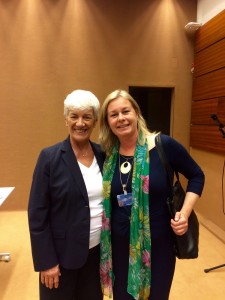
Tijdens de jaarlijkse vergadering van de VN Mensenrechtenraad in Geneve organiseerde de International Commission of Jurists (ICJ), samen met de International Bar Association (IBA), ook dit jaar een weer een zogeheten Side Event, een bijeenkomst waarbij aandacht wordt gevraagd voor een bepaald thema. Het thema van de bijeenkomst op 14 juni jongstleden was ‘Who judges the judges? Accountability for judicial corruption and judicial complicity’. 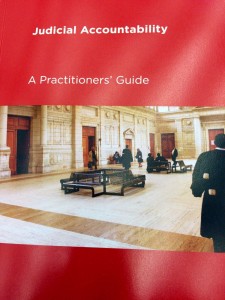
Tijdens een panel discussie waaraan onder andere Monica Pinto, de nieuwe VN Special Rapporteur on the Independence of Judges and lawyers, en Thulani Maseko, een advocaat uit Swaziland die slachtoffer is geweest van judicial misconduct en lange tijd op arbitraire gronden gevangen heeft gezeten, deelnamen werd het thema besproken. De nadruk lag daarbij op wijze waarop en de procedures door middel waarvan dergelijk ongewenst rechterlijk gedrag kan worden aangepakt. Ook was er aandacht voor de situatie van landen in transitie, waar veelal de zittende rechterlijke macht nog nauwe banden heeft met het vorige regime. De veelheid en verscheidenheid aan vragen die door de aanwezige afgevaardigden van een groot aantal VN landen gesteld werden, gaf duidelijk aan dat dit een thema is dat leeft en dat, hoe precair ook, onze aandacht nodig heeft.
Rechters voor Rechters was een van de co-sponsors van het Side Event. Bestuurslid Jolien Schukking was hierbij aanwezig. Aan het einde van de bijeenkomst presenteerde de IBA een recent rapport Judicial Systems and Corruption en werd door Matt Pollard van het ICJ Centre for the Independence of Judges & Lawyers de ICJ Practitioners’ Guide on Judicial Accountability gelanceerd, een gids die praktisch informatie verschaft over de wijze waarop ernstig judicial misconduct zou kunnen worden bestreden en aangepakt. Deze gids kan worden gedownload via deze link.
Noot bij EHRM uitspraak Ivanovski v Macedonië
In het tijdschrift EHCR verscheen recent het arrest van 21 januari 2016 van het EHRM in de zaak Ivanovski v. Macedonië, voorzien van een noot geschreven door de voorzitter van Rechters voor Rechters, Tamara Trotman.
Hieronder zijn een samenvatting van het arrest en de noot opgenomen, zoals – met het arrest – gepubliceerd in afl. 5 van EHCR 2016: EHCR 2016/94 (link). Zie ook hier.
Samenvatting arrest
Ivanovski (geboren in 1946) was vanaf 2003 rechter en later president van het Constitutionele Hof in de voormalige Joegoslavische Republiek Macedonië. De Zuiveringswet 2008 bepaalde dat collaboratie met de staatsveiligheidsdienst tussen augustus 1944 en januari 2008 in de weg stond aan vervulling van een betrekking in overheidsdienst. In dat kader moesten alle overheidsfunctionarissen een non-collaboratieverklaring kunnen inleveren bij de zuiveringscommissie. Klager heeft op 3 september 2009 een dergelijke verklaring ingediend.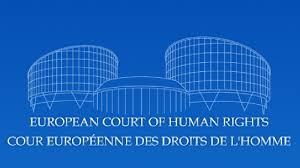
Het Constitutionele Hof heeft in januari 2010 bekend gemaakt verschillende bepalingen in de Zuiveringswet te zullen toetsen aan de Macedonische grondwet en deze, hangende de procedure, buiten werking te stellen. In maart 2010 heeft dit Hof een aantal bepalingen ongrondwettig verklaard. Deze beslissing van het Constitutionele Hof leidde tot de nodige politieke ophef die ook breed werd uitgemeten in de media.
De zaak van klager was de eerste zuiveringszaak onder deze wet. Op 21 september 2010 heeft klager, via vertrouwelijke correspondentie van de zuiveringscommissie, vernomen dat zijn verklaring niet strookte met de informatie uit het staatsarchief, waar de commissie over beschikte. Op 27 september 2010 heeft op zijn verzoek een openbare hoorzitting plaatsgevonden. Al op 24 september heeft de Macedonische premier in een via de media verspreide open brief aan de ‘opponenten van de zuivering’ bericht dat de zuiveringscommissie had onthuld, dat een lid van het Constitutionele hof, benoemd door de vorige president, had gecollaboreerd met de veiligheidsdienst van het voormalige regime. De premier zag hierin een verklaring voor het door het Constitutionele Hof ongeldig verklaren van een aantal hervormingswetten van zijn regering (par. 32).
Continue reading Noot bij EHRM uitspraak Ivanovski v Macedonië
Oproep deelname Colombia Caravana 2016
In augustus 2014 hebben Peter Ingelse en Anne-Marie Smit namens Rechters voor Rechters deelgenomen aan de Colombia Caravana. Een buitengewoon ![]() interessante reis georganiseerd door de Caravana UK Lawyers’ Group in samenwerking met de Human Rights Lawyers (ACADEHUM) uit Bogota. De opzet van deze vierde Caravana was een bezoek aan Colombia om de situatie van mensenrechtenadvocaten en verdedigers van de mensenrechten te monitoren en tevens de toegang tot de rechter voor slachtoffers in het geval van mensenrechtenschendingen in Colombia te bezien. Aan de Caravana namen ook zeven rechters deel uit vijf verschillende landen.
interessante reis georganiseerd door de Caravana UK Lawyers’ Group in samenwerking met de Human Rights Lawyers (ACADEHUM) uit Bogota. De opzet van deze vierde Caravana was een bezoek aan Colombia om de situatie van mensenrechtenadvocaten en verdedigers van de mensenrechten te monitoren en tevens de toegang tot de rechter voor slachtoffers in het geval van mensenrechtenschendingen in Colombia te bezien. Aan de Caravana namen ook zeven rechters deel uit vijf verschillende landen.
Het algemene rapport dat op grond van de ervaringen gedurende deze Caravana is geschreven is op 28 mei 2015 aan de Colombiaanse ambassadeur in Den Haag aangeboden. Het rapport dat specifiek ziet op de positie van Colombiaanse rechters is aangeboden aan de ambassadeur van Colombia op 14 februari jongstleden.
Van 20 tot 28 augustus 2016 is de volgende Colombia Caravana gepland. Voor deze reis zijn de volgende doelen geformuleerd:
- to prevent/reduce threats against lawyers and other defenders and the communities they work with by shining a spotlight on their work and making the Colombian authorities aware of the international concern;
- to identify and through first-hand accounts and open discussion, gather information on the current challenges facing Colombian human rights lawyers in several regions of the country, with special attention to challenges posed by the transitional justice process.
- to hold workshops on relevant subjects aiming to share expertise and information.
- to influence the government by engaging in dialogue with officials from relevant departments and raising ACADEHUM’s concerns, to encourage these departments to take action on them.
- to use the information gathered to compile a report detailing the findings of the mission and including a series of recommendations for future action on the part of both the Colombian authorities and the international community.
- to draw up a framework with Colombian lawyers for future collaboration, support and exchange.
De Caravana richt zich op verschillende gebieden in Colombia en betrekt het transitieproces in relatie tot de vredesbesprekingen in het programma.
Als (voorzitter van) Caravana Nederland wil ik bewerkstelligen dat de (moeilijke) positie van rechters in Colombia nadrukkelijk in het programma wordt opgenomen en daarbij in het bijzonder te focussen op de problemen voor rechters rond het land restitutieprogramma. Met Edwin Rubio is besproken dat de contacten met rechters in Bogota waaronder die met de Sala Penal (het hoogste rechtscollege) via ACADEHUM wordt georganiseerd. De overige contacten met rechterlijke colleges waaronder de Consejo Superior de la Judicatura (vgl. de Raad voor de Rechtspraak) en de contacten met rechters in de te bezoeken steden worden door ons zelf gelegd (uiteraard in overleg met ACADEHUM en de Colombia Caravana UK). De eerste contacten, waaronder met Medellín, zijn inmiddels gelegd.
Iedereen die interesse heeft in de Colombia Caravana Nederland en/of deelname aan de Colombia Caravana 2016 nodig ik van harte uit om contact op te nemen (a.m.smit@rechtspraak.nl). Het spreken en lezen van de Spaanse taal is een pre, maar geen must.
Voor nadere informatie over de Colombia Caravana 2014 zie hier en voor nadere informatie over Colombia Caravana Nederland zie hier.
UN statement: judicial accountability, attacks on lawyers
 Judges for Judges joined a statement on June 16th delivered by the ICJ at the UN Human Rights Council, on judicial accountability, and attacks on lawyers. ICJ made the statement on behalf of a group of eight NGOs, including professional organisations of judges and lawyers.
Judges for Judges joined a statement on June 16th delivered by the ICJ at the UN Human Rights Council, on judicial accountability, and attacks on lawyers. ICJ made the statement on behalf of a group of eight NGOs, including professional organisations of judges and lawyers.
The statement, read out by Swaziland lawyer Thulani Maseko during the Interactive Dialogue with the UN Special Rapporteur on the Independence of Judges and Lawyers, read as follows:
Madame Special Rapporteur on the Independence of Judges and Lawyers,
Our organizations strongly support your mandate. An independent judiciary and legal profession are essential to the rule of law and to the effective protection of human rights.
Independence and impartiality of the judiciary require integrity of individual judges and judicial institutions. Accordingly, there must be accountability for judicial corruption and judicial involvement in human rights violations.
Accountability mechanisms must themselves be independent, fair and transparent, in order to ensure they do not undermine the independence of the judiciary and that victims and the broader population see them as credible and accessible.
We note in this regard the International Commission of Jurists’ newly published Practitioners’ Guide on Judicial Accountability, and the International Bar Association’s recent report on Judicial systems and Corruption.
We also must highlight the growing problem of repression of lawyers who act in cases perceived to have human rights or political aspects, including through: harassment, suspension or disbarment; arrest, detention, unfair trial, and arbitrary imprisonment; torture or other cruel, inhuman or degrading treatment, enforced disappearance, or even unlawful killings.
This is inconsistent with the UN Basic Principles on the Role of Lawyers and incompatible with the rule of law. It violates the rights of individual lawyers and undermines the independence of the legal profession. It denies the rights of the people the lawyers are trying to protect.
Among current examples, the scale and depth of repressive measures against lawyers and HRDs in China is particularly stark, but similar concerns arise in, for instance, Egypt, Turkey, Thailand, Azerbaijan, Malaysia, Tajikistan, and Vietnam. (I myself was arbitrarily imprisoned in my own country Swaziland, for publicly expressing my opinions about judicial misconduct.)
We accordingly will urge lawyers, legal professional associations and others around the world to respond to the questionnaire you have prepared for your upcoming General Assembly report on the legal profession.
I thank you.
Continue reading UN statement: judicial accountability, attacks on lawyers
UN Statement: indicators of independence of justice systems
Judges for Judges today joined a statement delivered by the International Bar Association on indicators of independence of justice systems. The statement 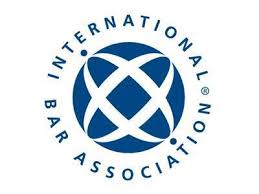 came during the interactive dialogue with the UN Special Rapporteur on the Independence of Judges and Lawyers.
came during the interactive dialogue with the UN Special Rapporteur on the Independence of Judges and Lawyers.
It read as follows:
As international organisations of legal professionals, we endorse the recommendation made by the Special Rapporteur to develop a set of international indicators to assess the independence of justice systems.
The Special Rapporteur has previously stated: ‘No ideal justice system exists; rather, there are universal principles that must be respected in the structure and functioning of any judicial system, so that it can duly fulfil its purpose’. (Report of the Special Rapporteur on the independence of judges and lawyers, (2014) UN Doc A/69/294, para 92.)
Achieving Sustainable Development Goal 16 – that is, providing access to justice for all and building effective, accountable and inclusive institutions – will require respect for the universal principles of independence and impartiality of justice systems and the independence of the legal profession.
In 2015, the International Bar Association (IBA) and the International Commission of Jurists (ICJ) proposed two indicators under SDG16, regarding the independence of the judiciary and an independent and self-governing legal profession. The IBA is currently developing ‘indicia of independence’ that can be used to assess the state of independence of the legal profession in a given jurisdiction. The Commonwealth Lawyers Association (CLA) and the Commonwealth Magistrates’ and Judges’ Association (CMJA) continue to monitor judicial and legal independence through the Commonwealth Latimer House Working Group.
We therefore, Madam Special Rapporteur, fully support your endeavour to develop universal indicators that complete the UN Rule of Law Indicators, and build on the UN Basic Principles on the Independence of the Judiciary, the Basic Principles on the Role of Lawyers, and the Guidelines on the Role of Prosecutors.
We further call upon States to ensure that national targets and indicators duly align with international indicators and international principles.
Thank you, Mr President
Continue reading UN Statement: indicators of independence of justice systems
